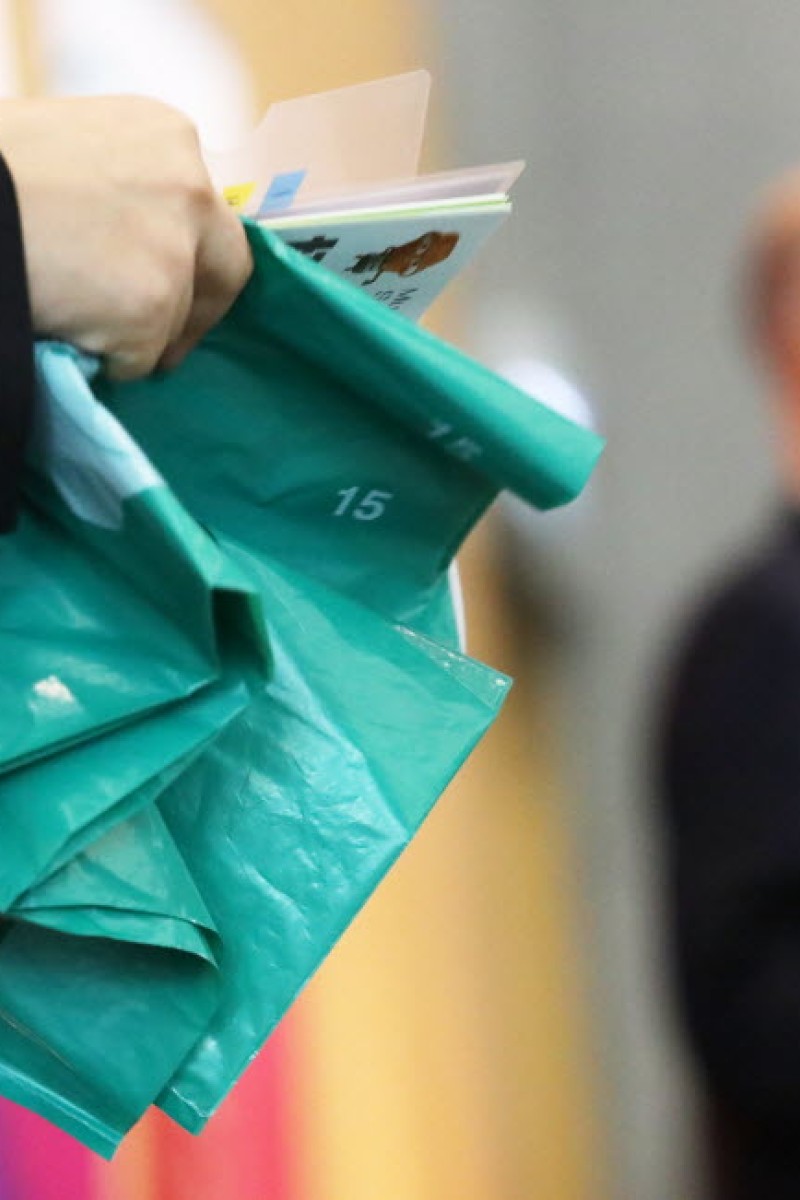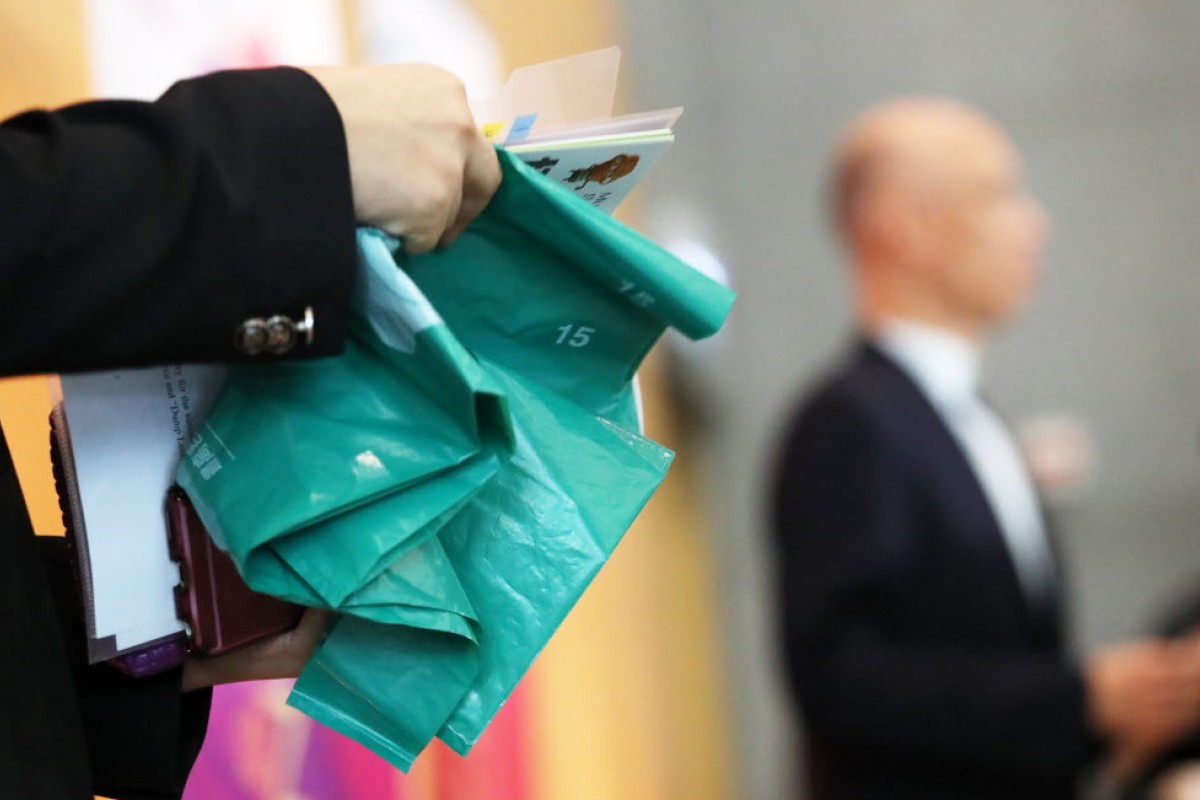
HK is 20 years behind Seoul and Taipei on waste charging scheme, environment chief Wong Kam-sing urges public to back initiative
Minister makes clear scheme’s purpose is not to boost tax revenue, but to cut waste; government plans to launch scheme in late 2020 at earliest
 Under a proposed charging scheme, 80 per cent of rubbish generated by housing estates, residential buildings and shops would have to go into designated bags, priced at an average of 11 HK cents per litre.
Under a proposed charging scheme, 80 per cent of rubbish generated by housing estates, residential buildings and shops would have to go into designated bags, priced at an average of 11 HK cents per litre. Hong Kong’s environment minister Wong Kam-sing called for public support for a proposed mandatory waste charging scheme, saying on Sunday the city was already about 20 years behind Seoul and Taipei in starting such an arrangement.
Wong also made clear the scheme’s purpose was not to boost tax revenue, but to reduce waste.
“As an advanced city in Asia, Hong Kong … is already 20 years slower than Seoul and Taipei in reducing waste through such a scheme. The per capita disposal of municipal solid waste has been increasing,” he said on a television talk show.
We need to get rid of our waste responsibly
“It doesn’t match our image as an international city. There has been increasing pressure on our landfill sites.”
The government planned to launch the scheme in late 2020 at the earliest. A draft bill would be presented at the Legislative Council later this month.
Under the proposal, 80 per cent of rubbish generated by housing estates, residential buildings and shops would have to go into designated bags, priced at an average of 11 HK cents (1 US cent) per litre.
Nine sizes, ranging from three litres to 100 litres, would be made available. The remaining 20 per cent would be charged by weight.
Five ways to live a life with less plastic waste in Hong Kong
The charge for the bags would be 30 HK cents for the smallest one, three litres, while the biggest, 100 litres, would cost HK$11. Rule breakers would be slapped with a HK$1,500 fine, enforced by officers from the Environmental Protection Department and the Food and Environmental Hygiene Department.
Taipei has been charging for municipal waste since 2000, and Seoul since 1995. The move has resulted in a 30 per cent reduction of waste in both cities.
Asked whether the fees would be lowered in the future, Wong said it depended on the “overall effectiveness” of the policy.
“If we look to Seoul and Taipei for their experiences, the cities managed to reduce waste in a short time … they created an atmospherefor the public to reduce waste,” said Wong, the secretary for the environment.
“In Taipei, the fees have in fact been lowered in recent years. That was because the city created an atmosphere to reduce waste. The people treasured their resources.”
Wong said that when Hong Kong introduced the 50 cents levy on plastic shopping bags in 2015, 80 per cent to 90 per cent of the public immediately chose to bring their own bags.
He said the HK$1,500 fine was deterrent enough because this was how much a household would pay for their waste disposal over several years.
Wong’s bureau earlier admitted it would be impossible to monitor the city’s 22,000 waste collection points and 45,000 buildings, so it would have to rely on a “risk-based” approach.
This would mean drawing up a list of black spots based on intelligence, video surveillance and complaints from the public to concentrate enforcement efforts. A hotline and smartphone app would be set up to allow people to report non-compliance.
According to 2016 figures, the daily amount of landfill waste produced by each Hongkonger was 1.41kg.
